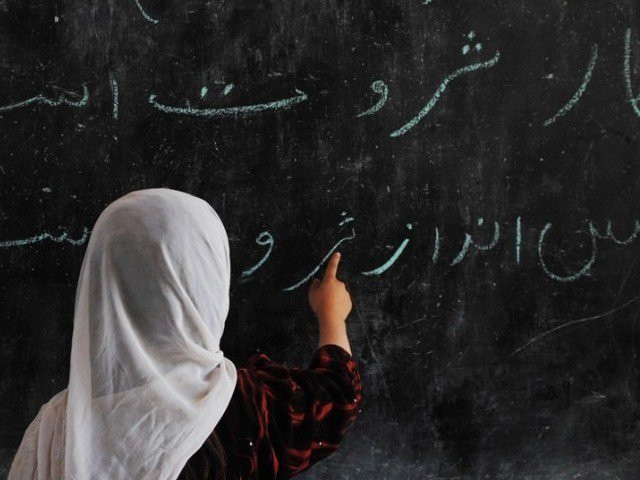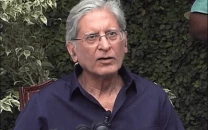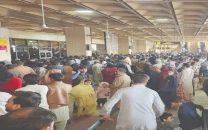1,261 children out of school in the capital
Finding presented at international moot in Islamabad by human rights ministry

PHOTO: AFP
The figures are revealed in a research titled, ‘Situation analysis of Out of school Children in Selected Rural areas of Islamabad’, carried out by the Federal Ministry of Human Rights.
The research findings were presented by the human rights ministry during a three-day international moot on HR in Islamabad. The study shows that more than a thousand children were out of school in selected areas of the capital, including Humak, Sohan, Noon and Alipur Farash.
Likewise, the study paints a bleak picture of the state of education in Islamabad and also points out that school administration including infrastructure, teaching methods, teacher’s attitude, classroom environment, and outdated curricula are the major reasons behind drop-outs.
‘90% of girls in rural Balochistan remain unschooled’
Ironically, despite being signatory of several international treaties, declarations and insertion of Article 25-A which makes it obligatory for the government to safeguard right to education, Pakistan is still struggling for its effective implementation.
Furthermore, the research also shares an area-wise breakup showing that of the total number of out-of-school children, 314 were from Humak, 380 from Sohan, 373 from Noon, and 194 from Alipur Farash.
The study further reveals that Humak, Noon and Sohan have the highest number of unschooled males whereas a majority of girls are out of school in Alipur Farash.
The research identifies poverty as one of the greatest barriers for these children not receiving education. Another reason highlighted during the presentation was the lack of job opportunities even after completing education.
Pakistanis ‘focus on stereotypical education instead of research’
Moreover, the highest number of research respondents belonged to Punjab, K-P and a few from Gilgit-Baltistan, says the report, adding that majority of them were working as laborers while the rest had different jobs such as drivers, craftsmen, scarp dealers, contractors, hawkers, gardeners, and government servants.
“Most of the children are out of school due to meager financial resources coupled with high school fees, migration, lack of jobs opportunities, disability, parental negligence or lack of awareness,” reads the report. It also depicts that a large number of children dropped out due to teacher’s harsh attitude, or least interest in class.
The report suggests that 21.2% boys and 13% girls are engaged in outdoor activities such as working at workshops, collecting trash papers, and a wide majority of children are involved in household chores and also work as domestic helps.
Public first in K-P’s public education
“Based on the findings, the study offers recommendations for protection and promotion of children’s rights including right to education as given under Article 25-A of the Constitution and also in the UNCRC,” stated the report.
Recommendations
In the light of above findings, the report suggests that a family support programme like ‘Pakistan Bait-ul-Maal’ and ‘Benazir Income Support Programme’ should be started for helping vulnerable families in sending their children to schools.
Moreover, the out-of-school children must be identified and mainstreamed through existing social welfare modules of the CADD. Non-formal education and vocational training must also be provided to these children with support of organistions like the NCD and NAVTTC.
The report strongly recommends forming a committee comprising representatives of the HR ministry, CADD, NCPC and other related organisations to develop and implement an action plan to facilitate the out-of-school children.



















COMMENTS
Comments are moderated and generally will be posted if they are on-topic and not abusive.
For more information, please see our Comments FAQ